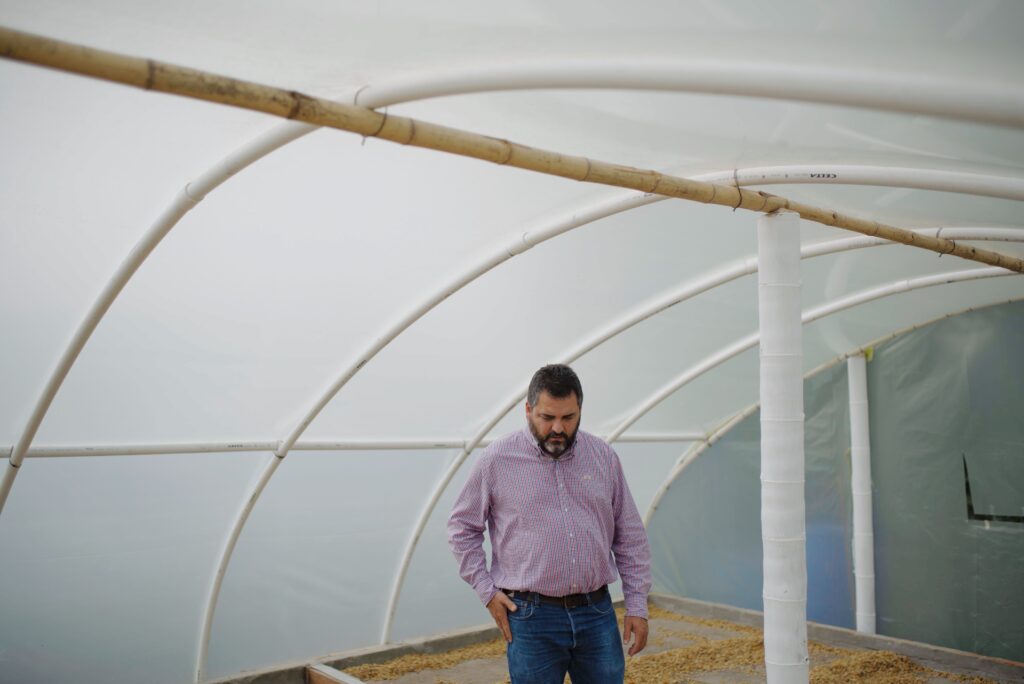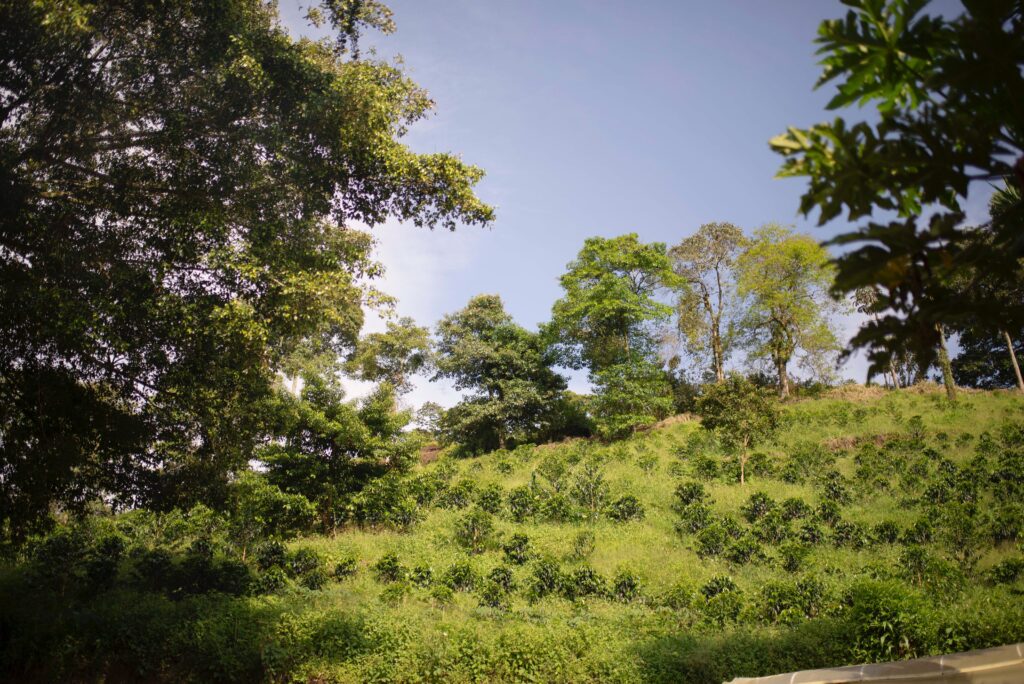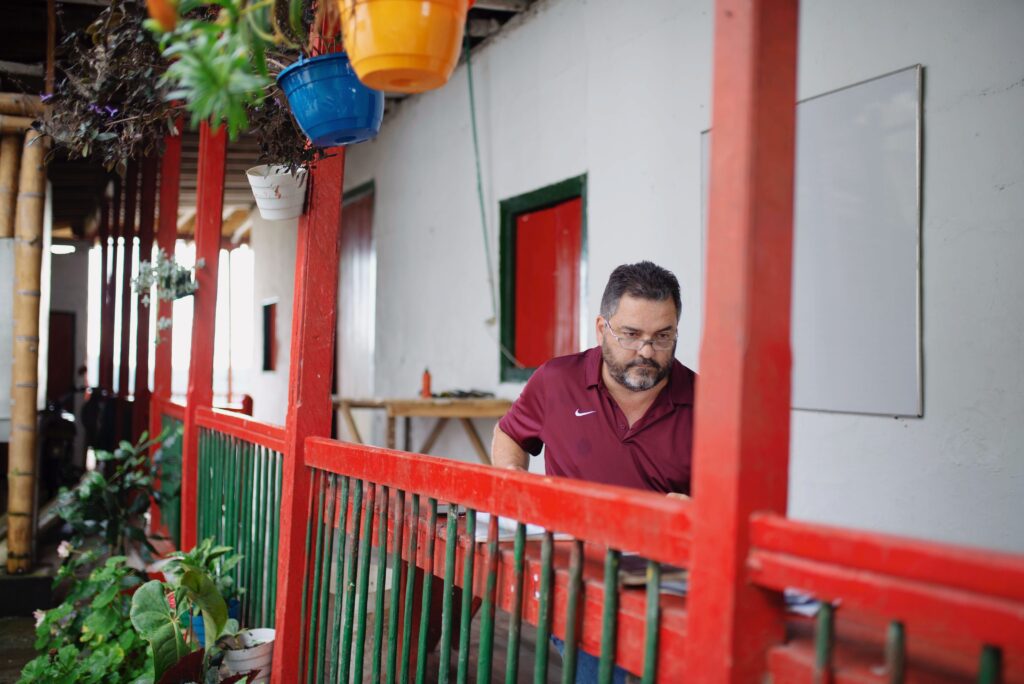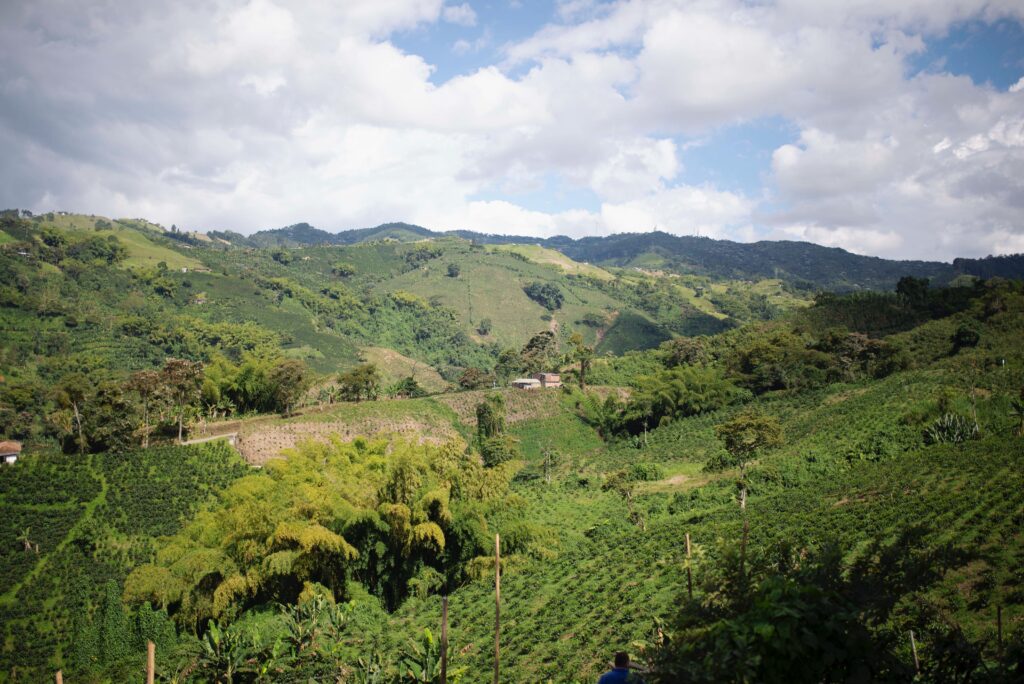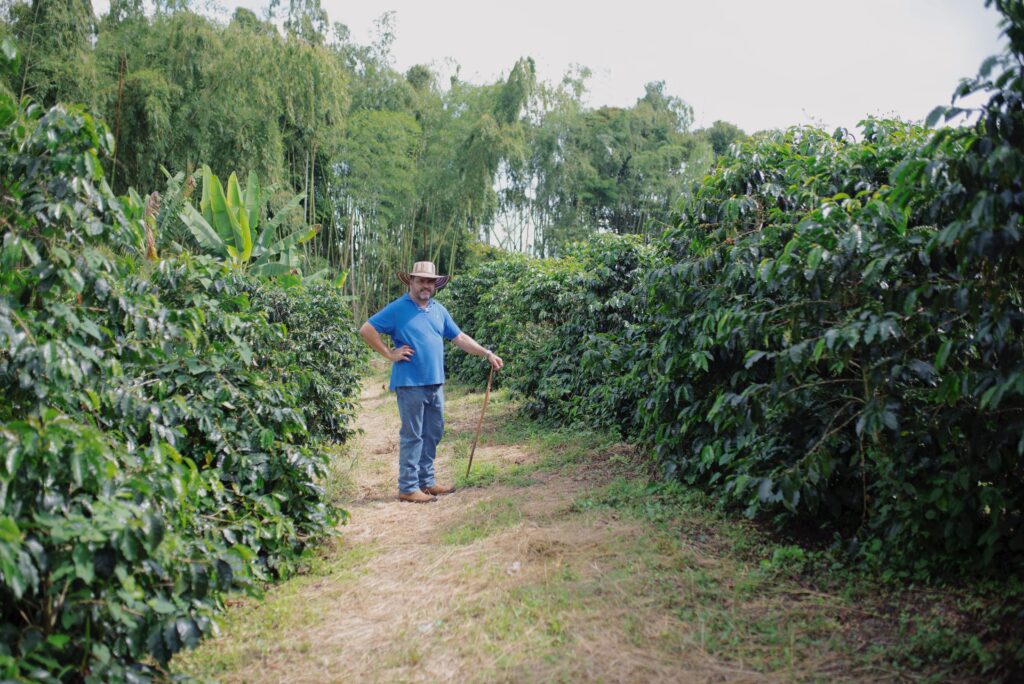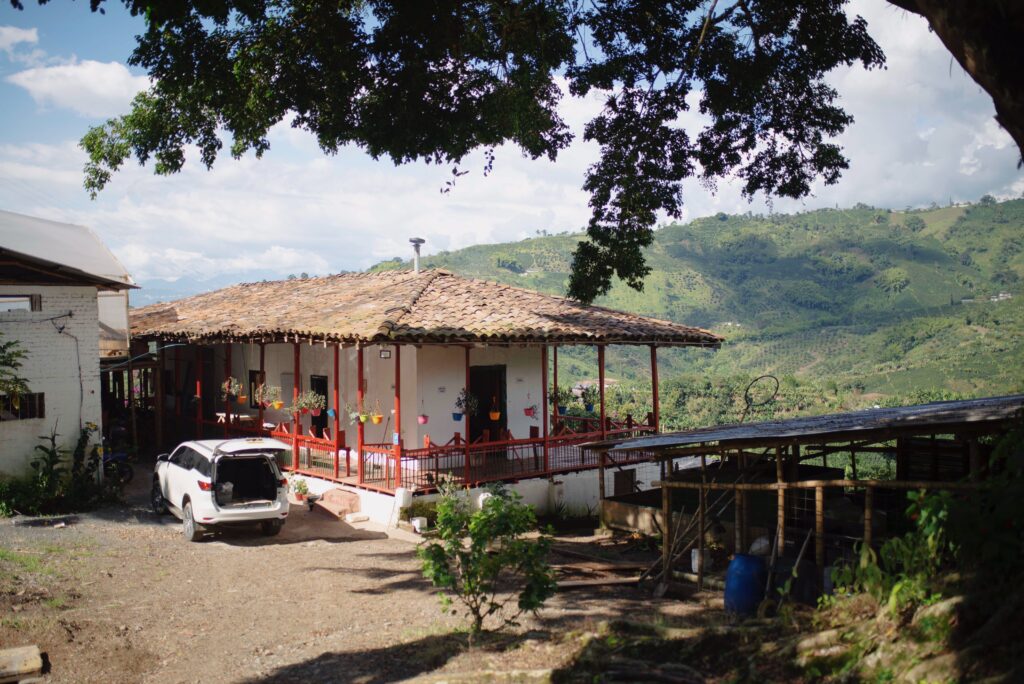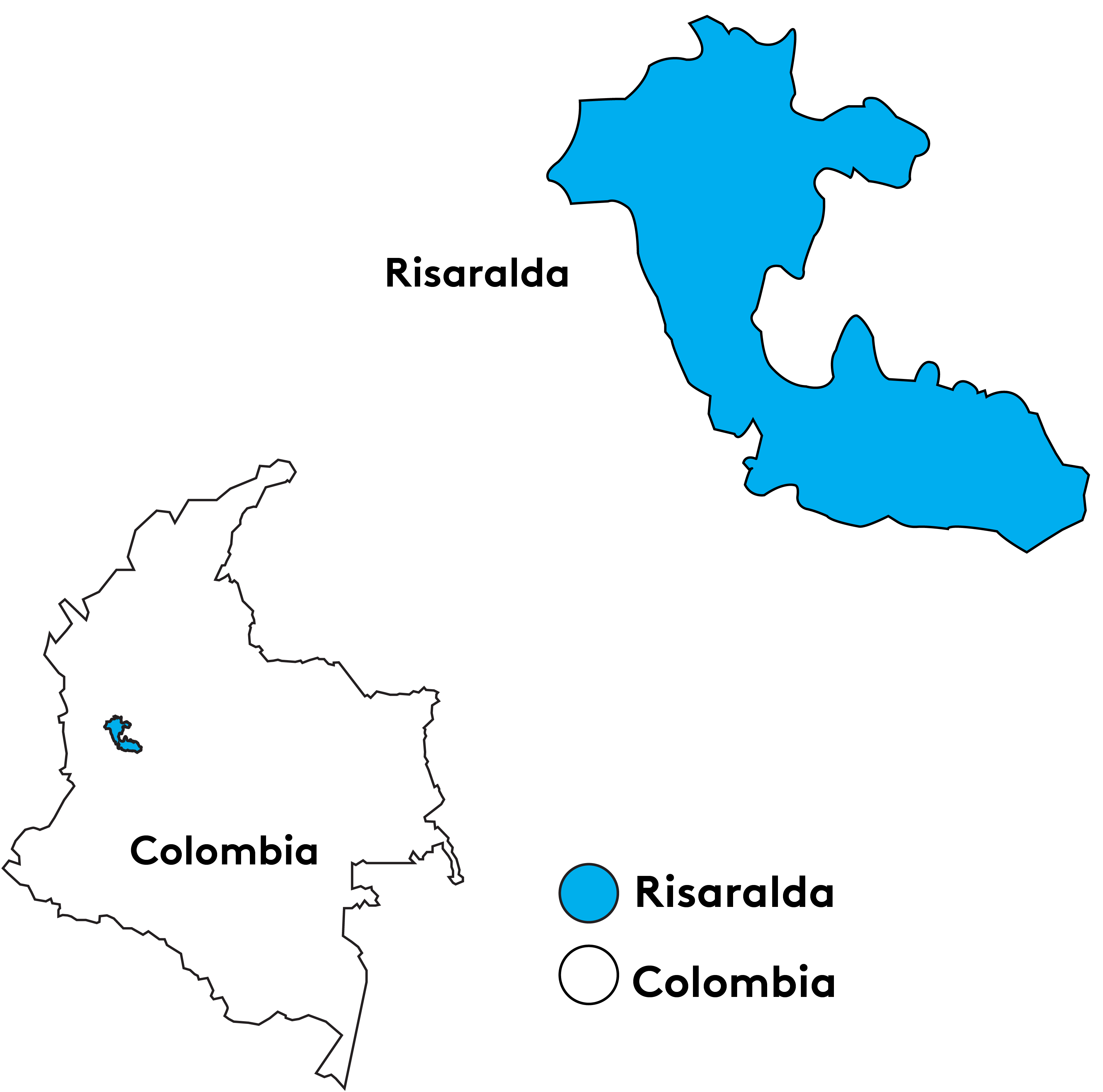Julio Madrid’s Finca Milán is located in Vereda El Hogar in the municipality of Pereira in Colombia’s Risaralda growing region. The farm is near the Los Nevados Natural National Park, a 58,300 hectare reserve that surrounds the northern volcanic complex formed by Nevado del Ruiz volcano. Here, Finca Milan rests 1600 meters above sea level, receiving temperatures year-round of 18–28°C which contributes to the quality climate conditions found on the property, benefiting the many varieties grown on the farm including Castillo, Colombia, Caturra, Catiope, Pink Bourbon and Red Bourbon. Finca Milán is the second largest farm in Café UBA, an alliance of farms in Risaralda which also includes La Riviera and Buenos Aires.
Julio Cesar Madrid Tisnés is a third-generation coffee producer and has dedicated himself to the production of quality coffees. This dedication has led him to focus on producing coffee varieties that are relatively rare in Colombia and are known for their complex cup profiles, including varieties like Sudan Rume, Yirgacheffe, Laurina, and several others. Julio’s daughter, Maria Antonia Madrid, is a biologist who has researched the organoleptic impact of using microbial starter cultures in coffee fermentation, helping Julio to improve his processing methods.
This lot of Caturra underwent Natural processing. Cherries are harvested with an average sugar content of 24°–28° Brix and with a pH between 5.6 and 5.9. The cherries are then fermented in their collection bags for 36 hours prior to being floated to remove unripe fruit and other defects. The fermented cherries are dried in direct sunlight for 6 days and then dried in the shade for 24 days to reach the ideal humidity.
